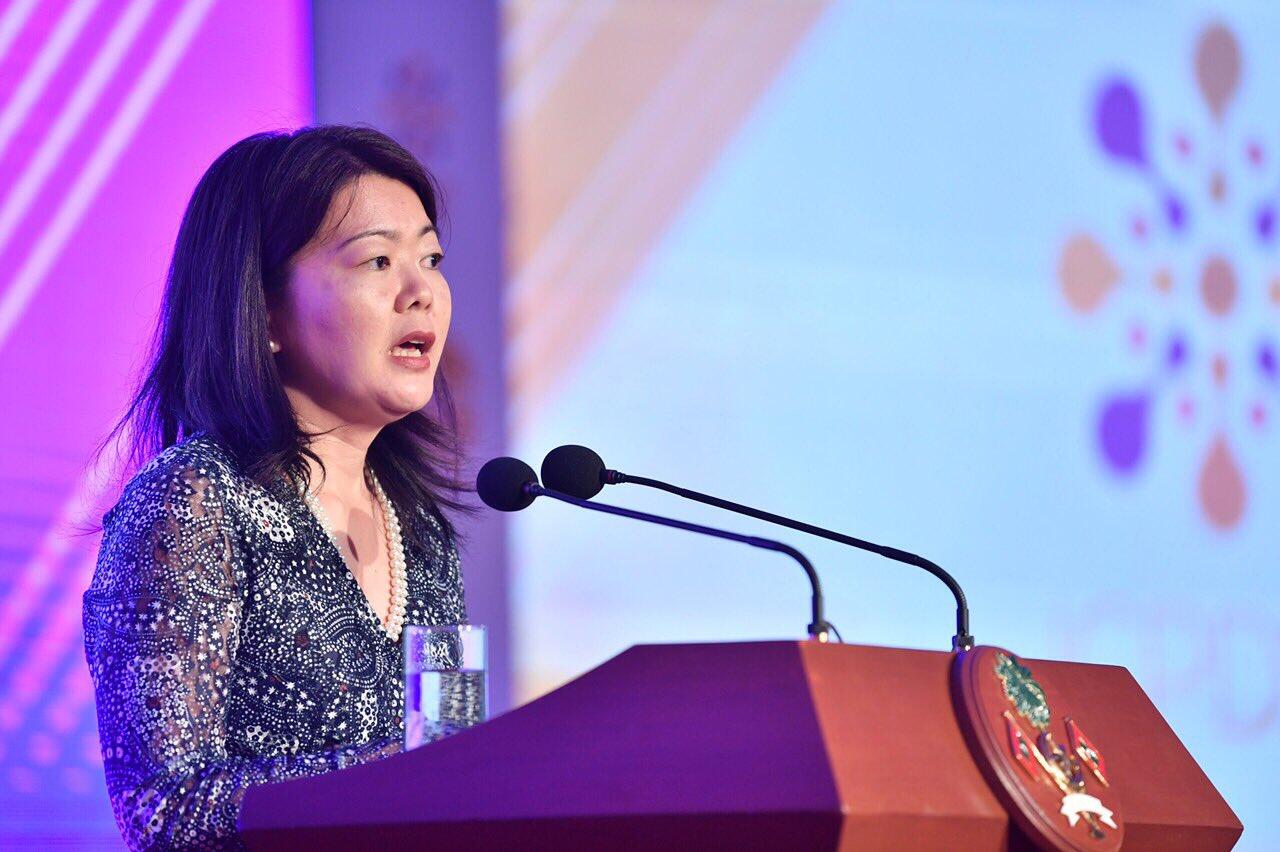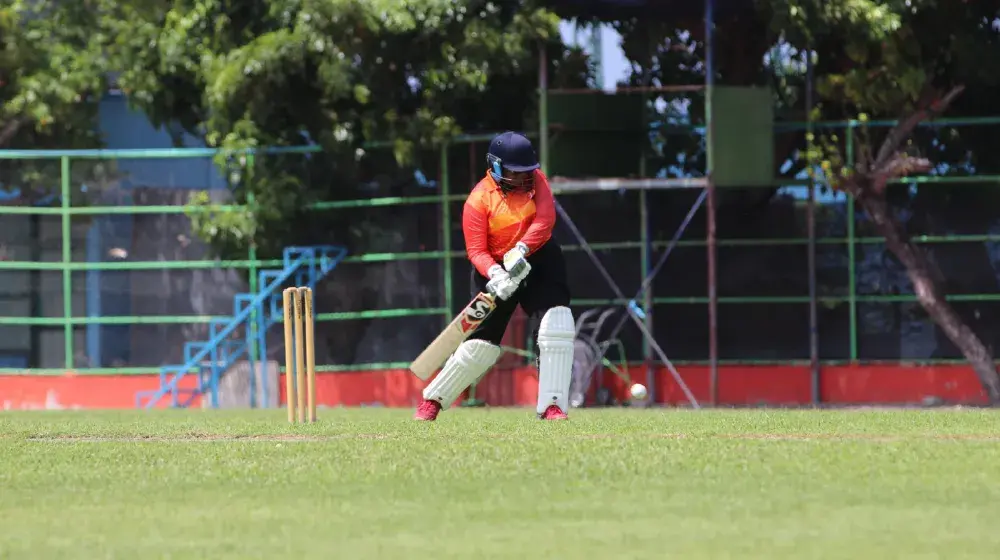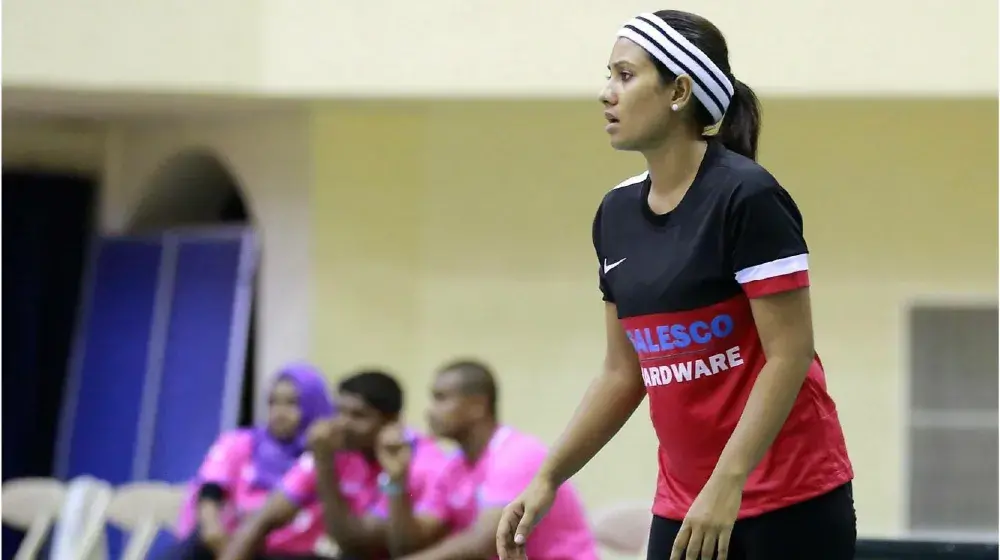His excellency President Ibrahim Mohamed Solih, Minister of State for National Planning and Infrastructure Mr. Akram Kamaaludeen, Cabinet Ministers, representatives from the government, civil society, my fellow colleagues from the United Nations, Ladies, and gentlemen,
Assalamualaikum and a very good evening.
I’m very pleased to be back in this beautiful country today on this auspicious occasion.
Having His Excellency President Ibrahim Mohamed Solih at this important function is a clear indication of the importance of World Population Day for the Government and the people of the Maldives. I would also like to thank the Ministry of National Planning and Infrastructure and the National Bureau of Statistics for organizing this event with us to commemorate World Population Day by bringing everyone together.
World Population Day is not only the most important day in the UNFPA calendar but, this year, an occasion to celebrate two milestones that belong not only to UNFPA but to the Maldives as well and indeed the entire world.
This year we mark the 50th anniversary of UNFPA, the United Nations sexual and reproductive health agency – supporting all UN Member States, including the Maldives, with our crucial mandate. UNFPA has been an important partner in the Maldives beginning from 1977 where our first support to the country was the support to Census. Since then UNFPA has been a proud partner to the Government of Maldives to undertake the subsequent Population and Housing Censuses.
We also celebrate 25 years of implementing the revolutionary Programme of Action that emerged from the first-ever International Conference on Population and Development, or ICPD, in Cairo – where 179 countries, including the Maldives, came together to chart a blueprint for the future – a vision that is yet to be fully achieved, which is the theme of World Population Day today – “25 Years of the ICPD: Accelerating the Promise.”
His Excellencies, ladies and gentlemen, let us examine the theme for today more closely and remind ourselves of what that promise was – what has been achieved since 1994 – and what remains to be done.
At the ICPD in Cairo, some 20,000 delegates from governments, UN agencies, NGOs and the media addressed a variety of questions – among them, how to achieve universal education; reduce maternal, infant and child deaths; and expand access to sexual and reproductive health services, including family planning.
The consensus reached was remarkable. For the first time ever, individual rights and choices were placed at the very heart of population and development – in particular the right to freely choose how to shape one’s life via decisions on if and when to get married, if and when to have children and how many – with a special focus on the rights and choices enjoyed by women.
In recognizing the centrality of sexual and reproductive health and reproductive rights – and linking them firmly to human rights and gender equality -- governments and other stakeholders found common ground in putting the needs and aspirations of people first, moving away from an earlier emphasis on population targets to control fertility amid fears of overpopulation.
In so doing, the Programme of Action offered the world a very different roadmap for sustainable development and prosperity – one both aspirational and practical.
After 25 years, looking back we see that progress in achieving sexual and reproductive health and rights has been remarkable worldwide. Far fewer mothers die during pregnancy or childbirth, many more women have access to freedom and choice to shape their lives and families, people are living longer, girls’ education has increased and the list goes on.
However, there are still millions of women and girls who have not benefited from the promises made in Cairo. In addition, the ICPD agenda for sexual and reproductive health and rights for all is now challenged as we have never seen before, in an increasingly conservative and polarised world.
His Excellencies, ladies and gentlemen.
Maldives has made remarkable progress under the umbrella of ICPD. Maldivians are now living on average 10 years longer than those who were born 25 years ago. Very few women die from giving birth. Women on average now choose to have 2 children, unlike their parents who had 6 or more children. Almost all births are attended by skilled professionals and in institutions. Women continue to seek professional guidance during their antenatal visits. The minimum age of marriage has been set at 18 years. These are not easy feats. UNFPA congratulates the Government – and the people - of Maldives for these successes.
Currently, the Maldives is also enjoying what is called the demographic dividend - meaning there are more people between 15 and 65 years than children or the elderly. This is a time when a country can prosper economically if the population is productive, with strategic and far-thinking policies to harness this demographic dividend.
But today, even as we celebrate these successes, we should also bring to the forefront challenges that remain - and the challenges that are emerging.
To name a few, one in four women continue to face violence against them, mostly by their intimate partners.
Maldives has slipped in the global Gender Inequality Index from 52nd in 2011 to 76th in 2017.
Although the vast majority of young people have access to high school education, far too many of them do not have adequate access to comprehensive sexuality education, and hence resort to unreliable information from the internet. Families are the cornerstone of our society. To make them strong, both partners must have comprehensive knowledge on sexual and reproductive health. In Maldives, by the time a person is 30 years, 1 in 5 young girls would have entered two or more marriages. This pattern, along with pervasive gender-based and domestic violence, indicates that there is a clear need for the right information at the right time, along with access to the right services at the right time.
Ladies and gentlemen, there is a fallacy that providing comprehensive sexuality education at as young an age as possible will encourage young people to engage in sexual activity – when in fact the opposite is true. CSE, as we call it, actually empowers girls and boys with the knowledge they need to make responsible choices, and – through an emphasis on gender equality, respect for self and others, and acceptance of diversity – sets a solid foundation for life and love. We encourage all countries to adopt and implement the updated International Technical Guidance on Sexuality Education, produced by UNESCO with support from UNFPA and other UN partners. It is grounded in research and evidence and will contribute significantly to the health and wellbeing of all young people everywhere.
On a related note, there is a large population of young people who are not in education, employment or training. Only 52% of the working age population is in the labour force. Many of them are women, in the informal sector - hence they do not get the same social protection benefits as those in formal institutes.
Rapid urbanization has led to the concentration of more than one-third of the population into Male region, making it a challenge to provide the basic services in the existing system. Urban planning, together with environmental concerns and climate change, also impact the health and wellbeing of all people, including the sexual and reproductive health of women and girls – increasingly research from around the world clearly shows these links, from the Pacific through Asia and beyond.
Migration is seen as a catalyst for economic growth when managed properly. Maldives has not been able to provide the labour force for certain jobs resulting in international migration in certain industries. If not managed well, this situation may result in a skills mismatch for the Maldivians and lead to growing tensions vis-à-vis foreigners, which is not healthy for social cohesion.
Even though the Maldives is currently in the midst of its demographic dividend period, in the next 30 years, there will be a fourfold increase of the elderly population. This is a demographic shift that is being seen in many countries across Asia-Pacific and other regions. Maldives is in a good position to prepare for this future reality from now, by investing in its people from a life cycle approach – from pregnancy through childbirth to childhood and adolescence and on to adulthood and, eventually, older age. This life cycle approach, through multi-sectoral partnerships between government and civil society, including intergenerational dialogue and collaboration, can prepare the country for changing age structures, while ensuring a gracefully ageing population with older people afforded the opportunity to continue to contribute to society for as long as they wish and are able. We need to really rethink what population ageing means, and ensure we can harness a “longevity dividend.”
These challenges cannot be addressed with business as usual. All these challenges have – at their heart – the need for sexual and reproductive health and rights and choice, with a focus on women and girls, and grounded in genuine gender equality. UNFPA’s focus is now to bring attention to this unfinished business of the ICPD Programme of Action – to bring governments and all partners together to address this urgently, especially in light of the 2030 Agenda for Sustainable Development and its Sustainable Development Goals, or SDGs, whose promise is to leave no one behind.
His Excellencies, Ladies and Gentlemen, let us be frank. If we are to achieve the SDGs and its vision of leaving no one behind, we have to achieve the vision, fulfil the promise, of ICPD. Without achieving ICPD, we simply will not achieve the SDGs.
At a minimum, UNFPA is committed to achieve three results that will transform the lives of women and girls by 2030:
· End unmet need for family planning
· End preventable maternal deaths
· End gender-based violence and all harmful practices against women and girls
To get to the last mile and to ensure no one is left behind, we will need a reinvigorated sexual and reproductive health and rights movement, new partners and innovative solutions.
As the global custodian of the ICPD, UNFPA continues to work for its full implementation. This year as we mark the 25th anniversary of this transformative agenda, we will leverage this momentum to mobilize political, social and financial support and further galvanize partnerships and search for collaborative solutions to achieve these ambitious targets.
This November, UNFPA, with support from the governments of Kenya and Denmark and a number of global partners, is convening world leaders in Nairobi to reaffirm our collective commitments to finishing the unfinished business of ICPD. The Nairobi Summit on ICPD25 will be a multi-stakeholder dialogue. Participants will range from heads of state and government to local leaders, civil society organizations, including women’s and youth groups, UN agencies, private sector partners and other ICPD and SRHR champions – reflecting the spectrum of stakeholders who gathered in Cairo a quarter-century ago. It is also crucial to engage stakeholders beyond our usual partners and broaden our understanding of why the ICPD is relevant today. The overall goal is to rally all actors to encourage governments to commit to concrete actions to fully implement the ICPD Programme of Action.
Seeing all of us gathered here today, seeing the political will and commitment reflected in this room, UNFPA has the confidence that Maldives can and will produce more success stories, as well as tackle present and emerging challenges, in the near future. We must all work together to shape the social and economic development of the country, and while we’re doing this, we must ensure that we reach the people who are left furthest behind.
I count on each and every one of us to make the unfinished business of ensuring sexual and reproductive rights and choices for all a reality and ensure the Nairobi Summit on ICPD25 is a success.
Thank you all for sharing this vision with UNFPA!





